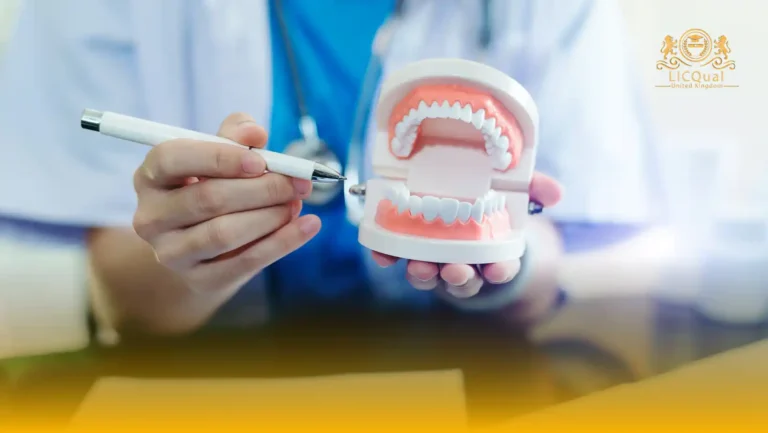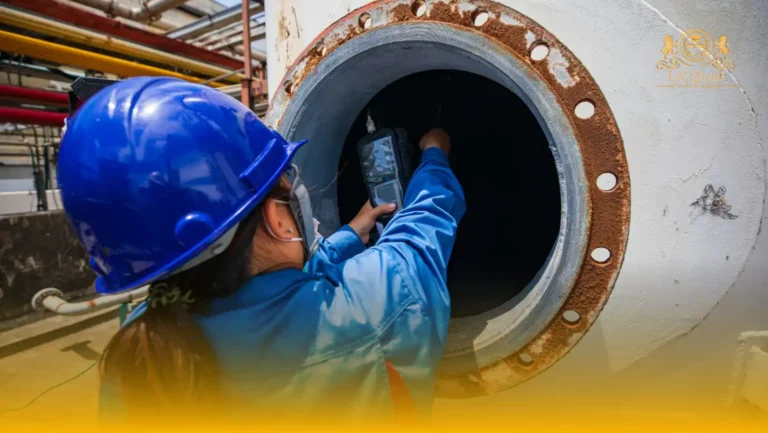The LICQual Level 3 Diploma in Maternal and Child Nutrition (Dip Maternal and Child Nutrition) is a specialised qualification designed for learners who wish to develop advanced expertise in nutrition for mothers, infants, and children. This diploma provides comprehensive knowledge of maternal nutrition during preconception, pregnancy, and lactation, as well as child nutrition from infancy through early childhood, enabling learners to apply evidence-based dietary strategies to support growth, development, and long-term health outcomes.
Ideal for healthcare professionals, nutritionists, dietitians, midwives, and wellness practitioners, this qualification helps learners expand their knowledge, enhance their professional skills, and achieve meaningful Continuing Professional Development (CPD). Learners gain the ability to assess nutritional needs, design personalised dietary plans, and implement interventions that promote optimal maternal and child health.
LICQual ensures that all centres delivering this diploma maintain the highest standards of teaching and training. Centres must employ competent and qualified staff and provide access to up-to-date learning materials, practical tools, and facilities necessary to deliver a high-quality educational experience. This ensures learners receive both theoretical understanding and practical skills applicable to professional practice.
By completing this diploma, learners achieve a recognised qualification that strengthens their professional credibility and enhances career prospects. The programme is structured to provide a balanced blend of scientific knowledge and practical application, empowering learners to implement effective maternal and child nutrition strategies confidently in healthcare, community, and wellness settings.
Course Overview
Qualification Title
LICQual Level 3 Diploma in Maternal and Child Nutrition (Dip Maternal and Child Nutrition)
Total Units
6
Total Credits
60
GLH
240
Qualification #
LICQ2201041
Qualification Specification
To enroll in the LICQual Level 3 Diploma in Maternal and Child Nutrition (Dip Maternal and Child Nutrition) , applicants must meet the following criteria:
|
Qualification# |
Unit Title |
Credits |
GLH |
|---|---|---|---|
|
LICQ2201041-1 |
Fundamentals of Maternal Nutrition |
10 |
40 |
|
LICQ2201041-2 |
Infant and Child Nutrition |
10 |
40 |
|
LICQ2201041-3 |
Nutrition and Maternal-Child Health Conditions |
10 |
40 |
|
LICQ2201041-4 |
Assessment and Planning of Maternal and Child Diets |
10 |
40 |
|
LICQ2201041-5 |
Research Methods and Evidence-Based Practice in Maternal and Child Nutrition |
10 |
40 |
|
LICQ2201041-6 |
Practical Applications of Maternal and Child Nutrition |
10 |
40 |
By the end of this course, learners will be able to:
Unit 1: Fundamentals of Maternal Nutrition
By the end of this unit, the learner will be able to:
- Explain the nutritional requirements before conception, during pregnancy, and lactation
- Analyse the role of macronutrients and micronutrients in maternal health
- Assess maternal dietary intake and identify potential nutritional deficiencies
- Apply strategies to support optimal maternal nutrition for health outcomes
Unit 2: Infant and Child Nutrition
By the end of this unit, the learner will be able to:
- Explain the nutritional requirements of infants and young children
- Analyse feeding practices, including breastfeeding, formula feeding, and weaning
- Assess dietary patterns in early childhood to support growth and development
- Apply strategies to promote healthy eating habits in infants and children
Unit 3: Nutrition and Maternal-Child Health Conditions
By the end of this unit, the learner will be able to:
- Identify common maternal and child health conditions and their nutritional implications
- Analyse dietary strategies for managing conditions such as gestational diabetes, anaemia, and obesity
- Evaluate the role of nutrition in preventing and managing malnutrition and diet-related conditions
- Develop evidence-based nutritional interventions for mothers and children with specific health conditions
Unit 4: Assessment and Planning of Maternal and Child Diets
By the end of this unit, the learner will be able to:
- Conduct nutritional assessments for mothers and children using standard tools and methods
- Develop personalised meal plans based on individual needs, health status, and cultural considerations
- Implement dietary interventions to improve nutritional status and support health outcomes
- Monitor and adjust dietary plans according to feedback and changing requirements
Unit 5: Research Methods and Evidence-Based Practice in Maternal and Child Nutrition
By the end of this unit, the learner will be able to:
- Explain research methodologies relevant to maternal and child nutrition
- Collect, analyse, and interpret data from research and clinical practice
- Critically evaluate scientific literature and evidence-based interventions
- Apply research findings to improve maternal and child nutrition practice
Unit 6: Practical Applications of Maternal and Child Nutrition
By the end of this unit, the learner will be able to:
- Apply theoretical knowledge to plan and evaluate diets for mothers and children
- Conduct dietary assessments and provide nutrition guidance in practical settings
- Develop and implement meal strategies that promote health and wellbeing
- Demonstrate professional practice in supporting maternal and child nutrition outcomes
The LICQual Level 3 Diploma in Maternal and Child Nutrition is ideal for anyone passionate about improving maternal health and child nutrition. This accredited qualification is designed for healthcare professionals, educators, and individuals seeking to advance their careers in public health, nutrition, and education. Whether you want to specialize in maternal nutrition, support child growth, or gain an internationally recognized credential, this diploma provides the knowledge, skills, and confidence to make a meaningful impact.
Healthcare Professionals
- Doctors, nurses, and midwives aiming to strengthen expertise in maternal and child nutrition
- Public health workers seeking accredited training in nutrition and child health
- Clinical practitioners who want evidence‑based strategies for maternal nutrition and infant feeding
- Nutritionists and dietitians looking to expand their scope into maternal and child health
- Professionals working in hospitals, clinics, or community health centers
Educators and Trainers
- Teachers and lecturers delivering health and nutrition courses
- Academic professionals seeking internationally recognized qualifications in maternal and child nutrition
- Trainers designing nutrition programs for schools and community organizations
- Curriculum developers focusing on maternal health and child growth education
- Professionals aiming to integrate nutrition awareness into educational programs
Public Health Specialists
- Policy makers and advisors working in maternal and child health initiatives
- NGO staff involved in nutrition and community health projects
- Health campaign coordinators promoting maternal nutrition and child development
- Professionals supporting government health programs and outreach services
- Specialists aiming to improve nutrition standards in underserved communities
Students and Career Starters
- Learners interested in pursuing a career in nutrition and public health
- Students seeking a globally recognized Level 3 Diploma in maternal and child nutrition
- Individuals preparing for advanced studies in healthcare or nutrition science
- Career starters wanting to build strong foundations in maternal and child health
- Graduates aiming to enhance employability in healthcare and education sectors
Community Workers and Volunteers
- Social workers supporting families with maternal and child nutrition needs
- Volunteers engaged in child health and nutrition programs
- Community leaders promoting awareness of maternal nutrition and child growth
- Non‑profit staff working in maternal health outreach projects
- Individuals passionate about improving family health outcomes
International Learners
- Professionals seeking globally recognized maternal and child nutrition qualifications
- Learners aiming to work in international healthcare and nutrition programs
- Students preparing for cross‑border careers in public health and education
- Individuals interested in accredited online maternal and child nutrition courses
- Healthcare workers seeking flexible, affordable, and career‑focused training
Career Advancement Seekers
- Professionals aiming to specialize in maternal and child nutrition for career growth
- Individuals seeking accredited diplomas to strengthen their CV and professional profile
- Healthcare staff wanting to move into leadership roles in nutrition and child health
- Practitioners aiming to expand into consultancy or advisory positions
- Learners motivated to contribute to global maternal and child health initiatives
To deliver the LICQual Level 3 Diploma in Maternal and Child Nutrition effectively, centres must meet the following requirements:
- Qualified and Competent Staff: All teaching and assessment personnel must hold relevant qualifications and demonstrate expertise in maternal and child nutrition, healthcare, or related fields.
- Access to Learning Resources: Centres must provide learners with up-to-date textbooks, digital learning materials, journals, and practical tools to support effective study and research.
- Facilities for Practical Learning: Centres should have suitable facilities, including kitchens, simulation spaces, or clinical settings, to allow learners to apply nutrition principles in practical scenarios.
- Assessment and Monitoring Systems: Centres must implement structured assessment procedures, track learner progress, and provide timely, constructive feedback in line with LICQual standards.
- Health and Safety Compliance: Learning environments must adhere to local health and safety regulations to ensure the safety of learners during practical activities.
- Quality Assurance Processes: Centres must have robust quality assurance mechanisms to maintain high standards of teaching, learning, and assessment.
- Learner Support: Centres should provide guidance, mentorship, and access to additional resources to support learner success and professional development.
These requirements ensure that learners receive high-quality, internationally-standardised training, equipping them with the knowledge and practical skills needed to deliver effective maternal and child nutrition care in professional settings.
Assessment and Verification
All units within this qualification are subject to internal assessment by the approved centre and external verification by LICQual. The qualification follows a criterion-referenced assessment approach, ensuring that learners meet all specified learning outcomes.
To achieve a ‘Pass’ in any unit, learners must provide valid, sufficient, and authentic evidence demonstrating their attainment of all learning outcomes and compliance with the prescribed assessment criteria. The Assessor is responsible for evaluating the evidence and determining whether the learner has successfully met the required standards.
Assessors must maintain a clear and comprehensive audit trail, documenting the basis for their assessment decisions to ensure transparency, consistency, and compliance with quality assurance requirements.







